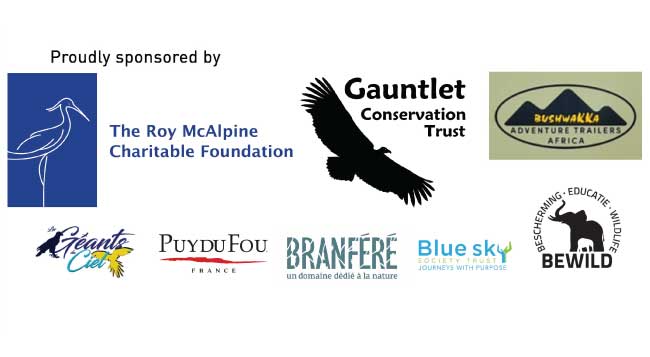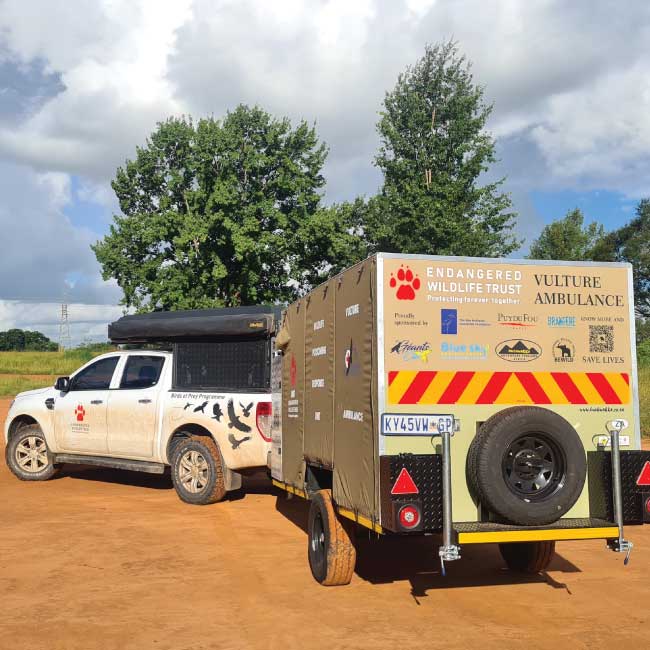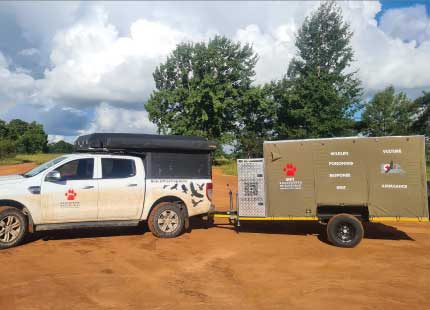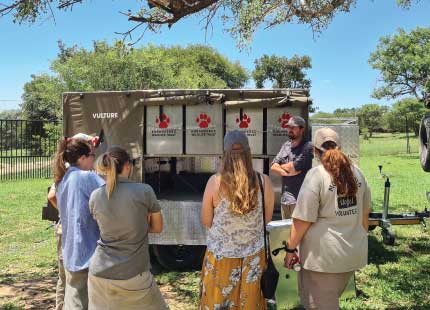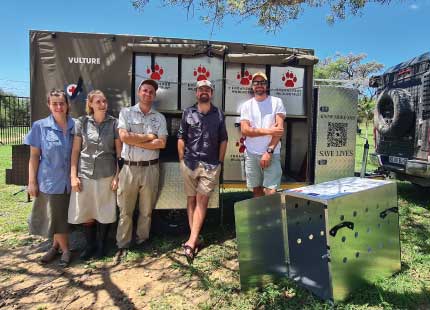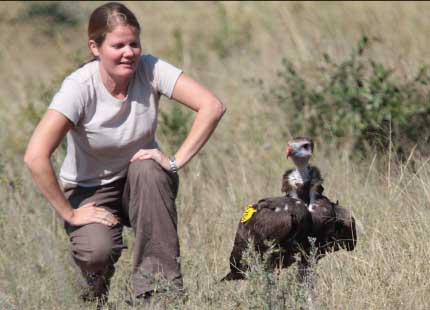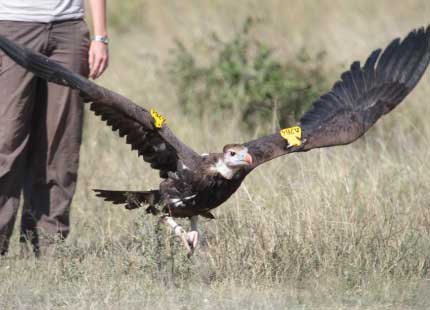911
Vulture Ambulance
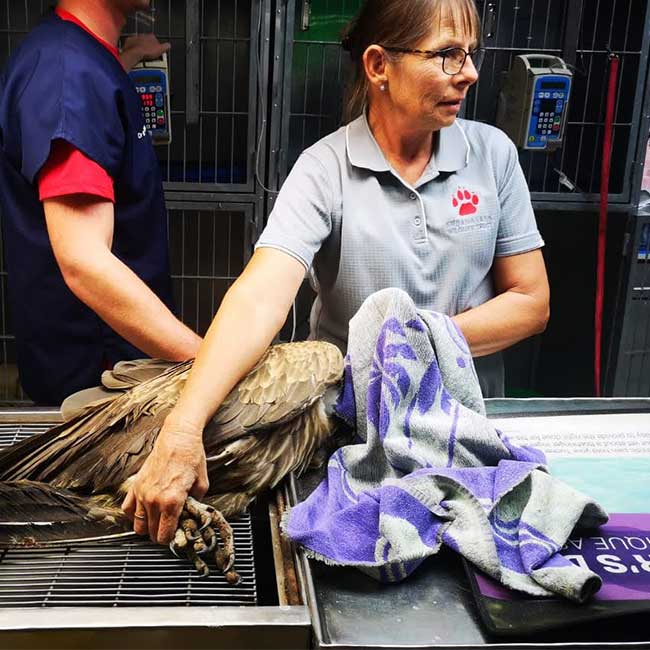
Emergency Response for poisoned vultures
The demand for animal products to feed the illegal wildlife trade has led to thousands of vultures being poisoned across Africa, devastating populations and driving them rapidly towards extinction in the wild. The last ten years have seen concerning numbers of mass wildlife poisoning events across Africa. The Great Limpopo Transfrontier Conservation Area (GLTCA), which includes the Kruger National Park and surrounding reserves, forms a vulture-rich landscape in which these birds play a critical role. It is also a high-risk area for wildlife poisoning, with approximately 750 vultures from five threatened species killed in the area since January 2019. The most recent mass poisoning event in August 2022 claimed the lives of 108 threatened vultures.
The Endangered Wildlife Trust and South African National Parks (SANParks) are working to improve the management and response to these devastating poisoning events by training rangers who respond to poisoning events to save surviving birds and decontaminate the scene to prevent further poisoning of animals or people.
We also work with the Moholoholo Wildlife Rehabilitation Centre, where surviving birds can be treated locally and rehabilitated until they are fit to return to the skies. Between 2020 and 2023, the EWT and Moholoholo rescued over 100 threatened vultures from poisoning incidents in the Kruger, of which over 70 have been successfully rehabilitated and released back into the wild with a second chance to thrive and breed.

What is a Vulture Ambulance?
A Vulture Ambulance is a vital mobile station to treat and transport poisoned vultures and give them the best chance of survival.
Why we need a Vulture Ambulance
With the relentless surge in wildlife poisoning throughout the GLTFCA region, the Endangered Wildlife Trust (EWT) has worked tirelessly with key donors to build a custom Vulture Ambulance. This Vulture Ambulance is a vital mobile rescue station fully equipped to treat and transport poisoned vultures and give them the best chance of survival.
Saving poisoned vultures is not easy. Poisoning events often happen in vast wilderness landscapes, some inaccessible by vehicle and can be over a day’s drive from rehabilitation centres. Once a poisoning event has been detected, experienced responders must administer first aid immediately and stabilise surviving birds. The birds then need a cool, quiet place to rest during the trip to the rehabilitation centre, which can be well over eight hours’ travel from the poisoning sites. In some cases, we must overnight in the field, where the trailer becomes even more vital – allowing us to monitor the condition of surviving vultures closely and keep them stable.
Our mobile Vulture Ambulance is currently stationed strategically within a high-poisoning-risk area. It can transport multiple birds in modular, easy-to-remove crates that can be accessed without disturbing other resting birds. The trailer includes a mobile clinic and first aid station, water, fuel and all the necessary equipment to keep us going in the field for long periods. It provides everything we need to rapidly and successfully rescue, stabilise, treat, and transport poisoned survivors, significantly increasing the number of birds that survive these catastrophic events.
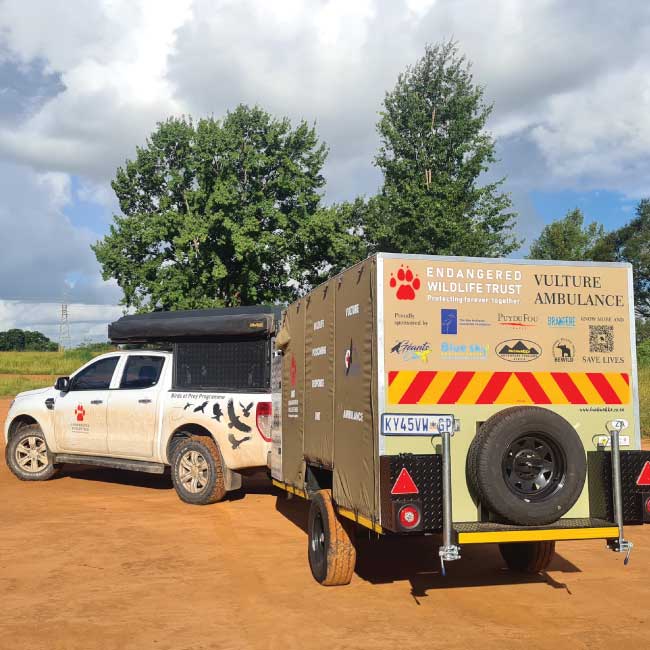
How you can help save vultures
We urgently need additional Vulture Ambulances stationed across key sites in southern Africa to help us save many more vultures. You can help by donating to support this important work.
With your help, we aim to fundraise to build three extra ambulances, which cost approximately R180,000 each. The funds will also be vital to support our ongoing vulture rescues, covering logistics, staff time, and, most importantly, veterinary assistance and rehabilitation costs. Every bird counts, and we need your help to improve our response and rescue of poisoning event survivors.
